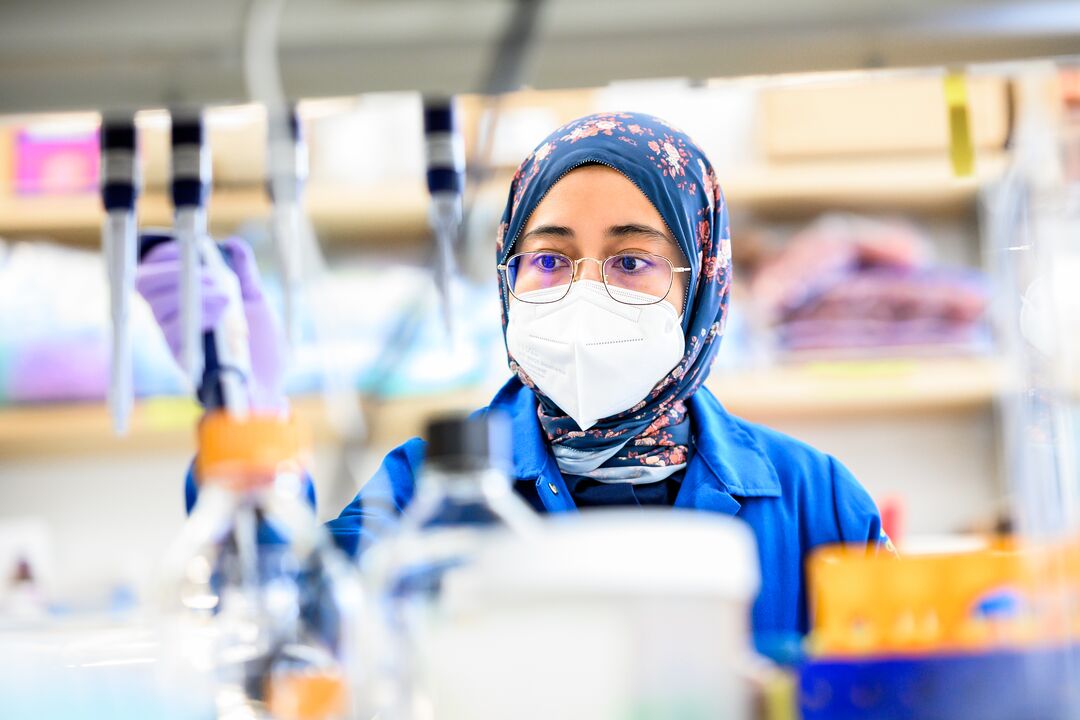
Our mission is to initiate and rigorously pursue both basic science and clinical research to better treat, and one day eliminate, neonatal diseases. The UCSF Division of Neonatology receives funding and support from National Institutes of Health (NIH) and a number of non-profit agencies. Our success in developing new areas of research - potentially leading to new therapies for newborns - depends heavily on “seed funding” provided by private donors. For more info on what you can do to support our research efforts visit How To Help.
Newborn Brain Research Institute (NBRI)
Newborn neurological injuries are the leading cause of intellectual disability, developmental delay and spasticity (cerebral palsy) in the United States. Such injuries are increasing because many more very premature babies are surviving due to advanced neonatal care. To address these critically important problems, UCSF founded the Newborn Brain Research Institute (NBRI) in 2006. The NBRI seeks to promote translational research that better integrates basic scientists and clinicians by targeting four areas:
- Basic Neurosciences
- Research Neuropathology
- Clinical Neurotherapy
- New Therapies for Neuroprotection and Neurorepair
For more information visit Newborn Brain Research Institute (NBRI).
Cardiovascular Research Institute (CVRI)
The Cardiovascular Research Institute (CVRI) performs cutting edge research illuminating cardiovascular and pulmonary biology and disease and trains clinicians and scientists to become future leaders of these fields.
The CVRI provides a home for a wide spectrum of investigation ranging from the most basic science to disease-focused and patient-based research. It also links faculty interested in cardiovascular biology and disease across UCSF programs, departments and campuses. The diversity of CVRI’s faculty and its collaborative culture fosters a multidisciplinary approach to research problems and provides an important bridge between UCSF’s outstanding clinical and basic science departments.
For more info visit the Cardiovascular Research Institute (CVRI) website.
Pediatric Neuropathology Research Laboratory
A large number of neurological disorders in the pediatric population contribute to the underlying etiology of intellectual and developmental disabilities. Some of these disorders have genetic underpinnings, whereas others are caused by injuries from the environment on the developing brain. Regardless of its nature, however, the neuropathological changes are often complex and require a dedicated facility that will provide further characterization using morphometric, immunohistochemical, and molecular approaches.
The Pediatric Neuropathology Research Laboratory at UCSF is supported by the Howard Hughes Medical Institute (HHMI) and the University of California Pediatric Neuropathology Consortium (UCPNC).
Our goals are to:
- Establish a high-quality tissue banking system for human brain tissues from a wide range of gestational and postnatal ages
- Investigate the molecular and cellular mechanisms of pediatric neurological disorders
- Develop new molecular markers to characterize the development of neural stem cells, progenitors and glia during normal development and in disease conditions
- Develop and implement cutting edge techniques such as induced pluripotent stem (iPS) cells to derive patient-specific models of disease
Fetal & Neonatal MRI/Baby Brain
Study comparing ultrasound and MR images of fetuses to identify the situations in which fetal MRI will provide valuable clinical information not seen on ultrasound. For more information on this study please visit Fetal & Neonatal MRI/Baby Brain.
Clinical & Translational Science Institute
At UCSF, CTSI is a cross-campus institute, with scientist leaders at its helm. As a part of the NIH’s CTSA network, UCSF’s CTSI is involved in national committees and activities in all major areas identified as necessary to support clinical & translational research. For more information visit the Clinical & Translational Science Institute
Fetal Treatment Research
The Fetal Treatment Center recently concluded an NIH-sponsored, randomized, controlled trial of fetal tracheal occlusion for severe congenital diaphragmatic hernia. An NIH-sponsored controlled trial of fetal surgical correction of meningomyelocele is currently in progress. Also, a new investigation of prenatal steroids for treatment of prenatally diagnosed CCAMs is currently underway.
For more information please visit the UCSF Fetal Treatment Center
